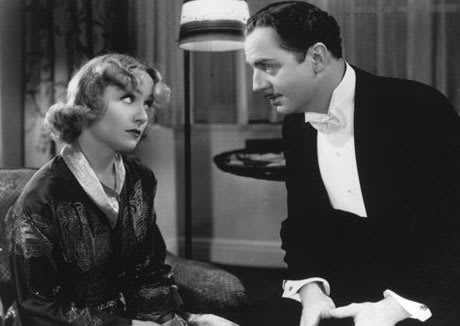My Man Godfrey is one of the beloved classics of the heroic era of screwball comedy ― the '30s ― and a fresh viewing only confirms its stature. However, such a description doesn't do justice to the film's offhand comic timing and its sense of ease, even with relatively melodramatic material. Credit director Gregory La Cava, a filmmaker largely unsung today who was renowned at the time for his flair for improvisation, and stars William Powell and Carole Lombard, simply two of the finest comic actors to ever grace a Hollywood soundstage. Made in 1936, the movie deftly establishes its themes and milieu from the start, with the snappy Art Deco cosmopolitanism of the opening credits giving way to the vaguely nightmarish vision of men scrabbling on a junk pile. That's where the principals meet. Powell is Godfrey, an oddly well-spoken hobo who encounters Irene (Lombard), the archetypal ditzy heiress in the midst of a scavenger hunt. Godfrey agrees to return with her as one of the items the game requires ― a "forgotten man," the vintage Depression term for the men discarded by society. He soon agrees to stay on as a butler for Irene's nutty family and soon enough becomes hopelessly entangled with them. As he tries to fend off Irene's amorous advances, the truth about his background inevitably reveals itself. The film may not be as side-splittingly funny as Bringing Up Baby or His Girl Friday, or as elating as It Happened One Night, but it still stands as one of the most enjoyable comedies ever made by virtue of its pitch-perfect sense of character. Everybody in the movie is treated with a generosity of spirit, even the most contemptible and ridiculous among them. This democratic attitude somehow co-exists with a remarkably biting social critique, yet it all seems so simple. Imagine the Occupy-era producing a mainstream movie comedy like this: we should be so lucky. The DVD is packaged as part of Universal's 100th anniversary celebration, so extras consist entirely of featurettes on studio heads Carl Laemmle and Lew Wasserman, which are a bit of a disappointment for a movie as rich and rewarding of in-depth discussion as this one.
(Universal)My Man Godfrey
Gregory La Cava

BY Mark CarpenterPublished Mar 26, 2012